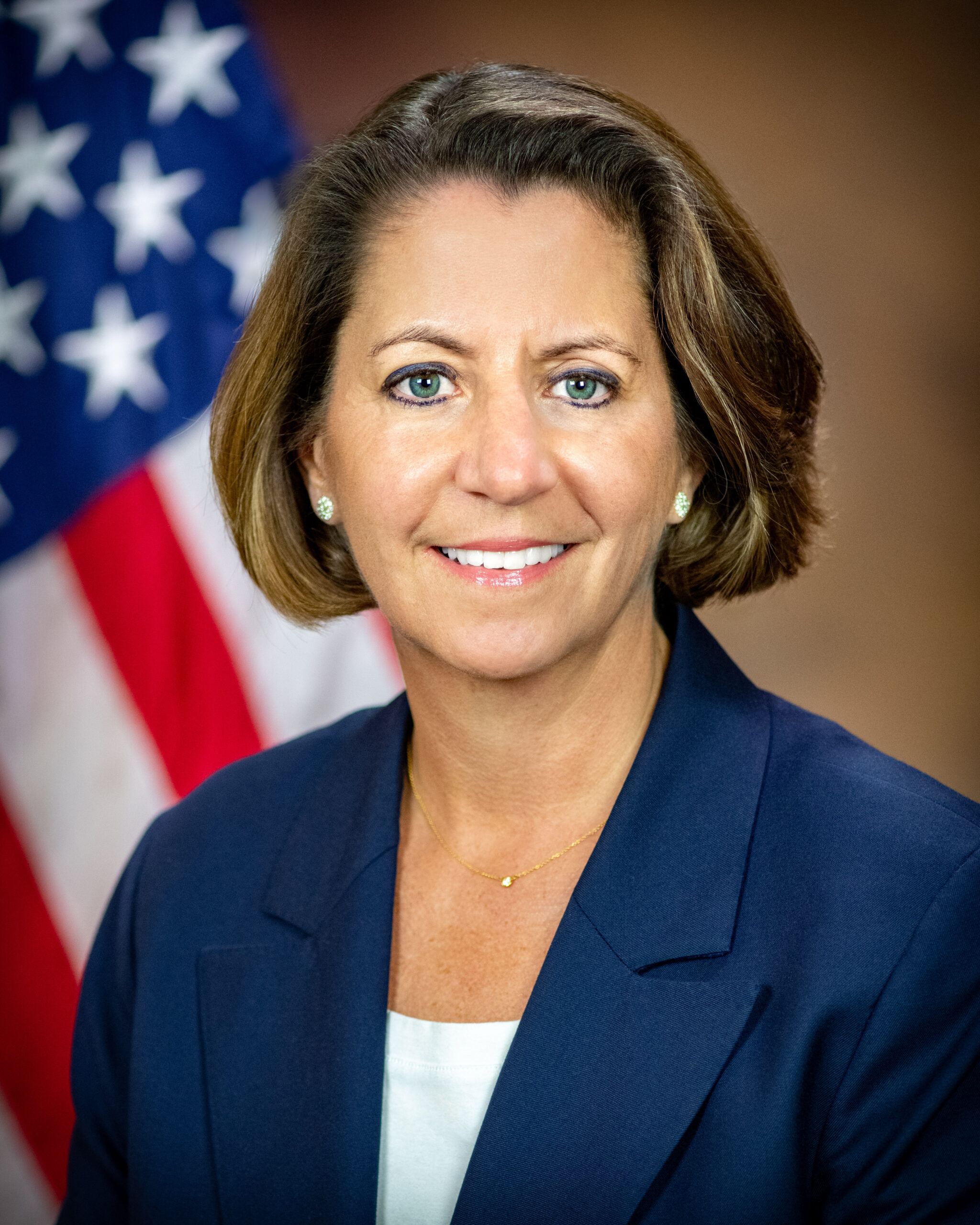The following blog post is part of a series on corporate revolvers who diminished the Biden administration’s effectiveness when it came to helping working people. Click here and here to read our full rebuttals to Matt Yglesias’ error-filled celebrations of the revolving door (which he published in Bloomberg on August 4 and on his Substack on August 12). Long story short: Joe Biden appointees with extensive ties to big business did real damage to his agenda; Democratic presidential nominee Kamala Harris should not make the same mistake.
Deputy Attorney General Lisa Monaco, the second-highest ranking official at DOJ behind Attorney General Merrick Garland, has been incredibly soft on white-collar crime. Her deference to corporations doesn’t come from nowhere; before joining the Biden administration, Monaco racked up many corporate clients as a partner at the BigLaw firm O’Melveny & Myers, principal at WestExec Advisors, and consultant at LOM Strategies—all roles that Monaco, who worked in the Obama administration, assumed during Trump’s presidency.
At O’Melveny & Myers, Monaco provided counsel to Apple and defended Humana and ExxonMobil, among other corporate villains. Her firm was closely associated with then-president Trump and defended him in two class action lawsuits involving Trump University. It also helped vet Trump transition team nominees and defended the Trump inaugural committee against accusations that it channeled cash to the Trump Organization and family members.
At the shadow lobbying firm WestExec, Monaco’s clients included military contractors like Boeing and tech venture capital funds such as SoftBank. At LOM Strategies, Monaco advised the rideshare giant Lyft while it was bankrolling the campaign to pass California’s Prop 22, which enabled it and other companies to misclassify gig economy workers as independent contractors ineligible for employment benefits.
According to Yglesias’ theory, those private sector experiences demonstrate Monaco’s “talent” and make her a valuable White House addition. But in practice, Monaco has failed to hold corporate wrongdoers accountable (and that was foreshadowed by her pro-oligarch résumé!).
One of Monaco’s most important responsibilities is to set, in consultation with Garland, the DOJ’s “enforcement priorities.” Notwithstanding a slight uptick in 2022 and 2023—after federal prosecutions of corporations reached a quarter-century low in 2021—Garland and Monaco pursued 139 fewer corporate prosecutions last year than Bush’s DOJ did in 2002, as Public Citizen has documented. Under Garland and Monaco, the DOJ continues to rely on leniency agreements, which can defer or even preclude criminal prosecution, rather than lawsuits to resolve cases.
Among the most egregious mistakes Monaco has made as deputy AG was her October 2023 decision to guarantee “safe harbor” to corporations that self-disclose misdeeds during the mergers and acquisition process. By suspending the criminal liability of companies that volunteer information about nefarious conduct as they seek to consolidate, this department-wide policy weakens the prosecution of corporate crime and encourages the increased concentration of economic power. Characterizing the policy as “a betrayal of DOJ’s mission” and calling for a reversal, Sen. Elizabeth Warren (D-Mass.) argued that Garland and Monaco’s approach incentivizes corporations “to engage in illegal activity of all kinds—knowing that they could simply wipe the slate clean during a merger.”
Monaco’s past corporate ties have inevitably raised conflict-of-interest questions about her present work as a regulator. For example, the DOJ in 2023 reached a $377 million settlement with the military contractor Booz Allen Hamilton for overbilling the U.S. government. As my colleagues Andrea Beaty and Emma Marsano wrote earlier this year, “The key whistleblower in the case estimated that the amount of the overbilling was close to $500 million, making the DOJ’s ‘punishment’ neither an appropriate meting out of justice nor a likely effective deterrent to potential fraudsters.” It looks even worse considering that during her time at WestExec, Monaco gave paid speeches to Booz Allen Hamilton and Lockheed Martin.
In late May, it was reported that Monaco held an off-the-record meeting with several Big Tech executives amid the DOJ’s lawsuits against Google (a case it won thanks Jonathan Kanter, assistant AG for the DOJ’s Antitrust Division, a notable outlier at Garland and Monaco’s anemic agency) and Apple, a previous client of Monaco’s. We sent a letter urging Monaco to publicly disclose who she met with, what was discussed, and permanently discontinue holding private meetings that may sow public distrust of the government.
In July, we joined the American Economic Liberties Project and Demand Progress in sending a letter to Garland and Monaco that urges the DOJ to criminally prosecute Boeing and asks Monaco to recuse herself given her past work on behalf of Boeing. Our letter came after it was reported that the DOJ planned to offer Boeing a plea deal that would allow the company to avoid a criminal trial if it agreed to plead guilty to a fraud charge stemming from two fatal crashes that killed 346 people, pay a $244 million fine, invest in safety upgrades, and undergo three years of compliance monitoring. In response to the letter, the DOJ made no move to recuse Monaco, claiming that Monaco’s prior involvement in Boeing had “no relevance to aviation safety of the ongoing case.” Lower-level federal prosecutors had recommended that the DOJ criminally charge Boeing, but Garland and Monaco instead offered up a “sweetheart deal,” which has since been finalized.
Put simply, Monaco’s baggage undercuts the Biden-Harris administration’s message that it’s committed to curtailing corporate mischief. And she’s far from alone in this regard.

